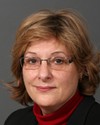I think the self-help movement has been of immeasurable support in that area. I had a yoga teacher who talked about spiritual emergencies, and how you can do yoga through your spiritual emergency. You think you're going crazy, you think you're falling apart, you do your yoga, you keep up your breathing and your body work, and you come out the other side and realize you've grown as a person and that what you saw as a concrete wall was in fact just a little detour. Suddenly you're a bigger person and more functional, even though what you went through was a meltdown all over the place.
I hope I don't sound too spiritual, but I think if we had a view of people as being spiritual, a view that we find in the self-help movement, in which mental health is one of the components along with physical health, we might solve a lot of problems. I think we're a lot of the way there because of the last 20 years.
This is a Second Opinion Society hobby horse, but the emphasis on antidepressants and drugs is both expensive and contrary to healthful living. It gets people hooked into little addictive spirals. It depends on the person and what is triggering the whole situation, but a lot of people do a lot better with more body work and talking and recreational therapies.
It would be good to educate the public that drugs only mask the problems. It's like using Claritin if you have allergies. You're putting a band-aid on the problem. If somebody has hives and you give them Claritin, the hives will go away, but it's awful to do that as a long-term strategy. My little boy gets hives, so I'll find out what causes it and then he won't have to take the Claritin. It's the same kind of thing.



